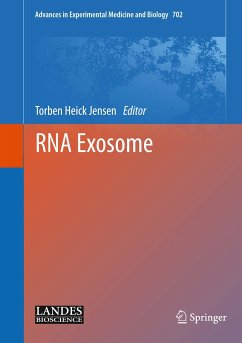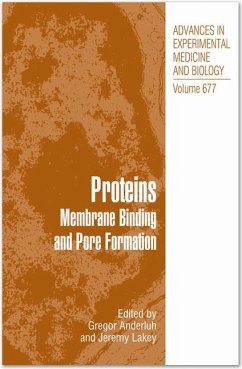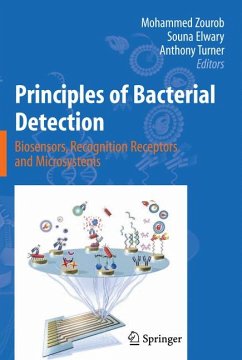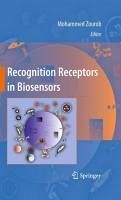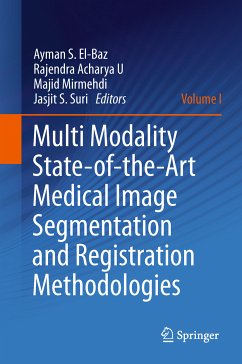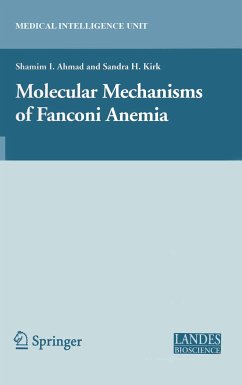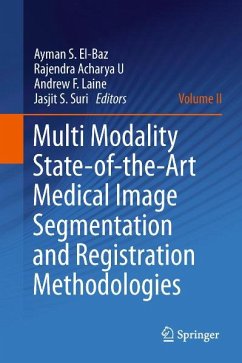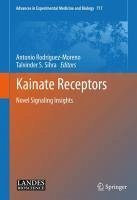
eBook, PDF
Kainate Receptors (eBook, PDF)
Novel Signaling Insights
Redaktion: Rodriguez-Moreno, Antonio; Sihra, Talvinder S.

PAYBACK Punkte
36 °P sammeln!





This volume critically examines the functional actions of the kainate-type glutamate receptors (KARs). Following on from the larger body of work on the NMDA- and AMPA-type ionotropic glutamate receptors (GluRs), studies with KARs have consistently thrown up exceptions to general rules about synaptic modulation. Contributors herein provide an insight to the idiosyncracies that now almost typify the KAR field. The fascinating insights provided in this volume serve to encourage searching mechanistic questions.
Dieser Download kann aus rechtlichen Gründen nur mit Rechnungsadresse in A, B, BG, CY, CZ, D, DK, EW, E, FIN, F, GR, HR, H, IRL, I, LT, L, LR, M, NL, PL, P, R, S, SLO, SK ausgeliefert werden.
ANTO NIO RODRIGUEZ¿MORENO is Associate Professor and Head of the Cellular Neuroscience and Plasticity Laboratory at the University Pablo de Olavide, in Seville, Spain. His main research interests include the study of the mechanisms of synaptic plasticity in cortex and hippocampus and the physiology of glutamate receptors of the NMDA and kainate type. He is a member of the Federation of European Neuroscience Societies (FENS) and the Society for Neuroscience (SFN). Following a degree in Biological Sciences at the University of Seville, Dr. Rodriguez¿Moreno received his PhD degree in Neurobiology and Molecular Biology from Cajal Institute and the University Automous of Madrid in Madrid, Spain. During a first postdoc at the University Pablo de Olavide, in Seville (Spain) he studied the mechanisms of learning and memory in awake animals. This was followed by a postdoctoral stay at University College London (UK) where he investigated the actions of kainate receptors using synaptosomes and brain slices. During a third postdoc at University of Oxford, he started to study the mechanisms of brain plasticity processes. TAL VINDER S. SIHRA is a Reader in Cellular and Molecular Neuroscience, and Teaching Lead in the Department of Neuroscience, Physiology and Pharmacology at University College London (UCL) UK. His main research interests are in the elucidation and characterisation of presynaptic receptors and downstream signaling pathways involved in the modulation of neurotransmitter release. Pursuant to an undergraduate degree in Biochemistry and Physiology from the University of Sheffield, UK, he completed his PhD (Biochemistry) in 1985 at the University of Dundee, Scotland, where he initiated his studies looking at the mechanisms underlying amino acid neurotransmitter release. He extended these studies at the Rockefeller University,New York, USA, in the laboratory of Professor Paul Greengard, Nobel Laureate in Medicine (2000), looking at the role of protein phosphorylation in presynaptic function and plasticity. In 1993, he obtained a faculty position at the University of London (Royal Free Hospital School of Medicine), and continued thereafter at UCL. Dr. Sihra is a member of the Biochemical Society (UK) and currently on the Signalling theme panel for the Society. He is a member of the Society of Neuroscience and former editor of the British Journal of Pharmacology. TAL VINDER S. SIHRA is a Reader in Cellular and Molecular Neuroscience, and Teaching Lead in the Department of Neuroscience, Physiology and Pharmacology at University College London (UCL) UK. His main research interests are in the elucidation and characterisation of presynaptic receptors and downstream signaling pathways involved in the modulation of neurotransmitter release. Pursuant to an undergraduate degree in Biochemistry and Physiology from the University of Sheffield, UK, he completed his PhD (Biochemistry) in 1985 at the University of Dundee, Scotland, where he initiated his studies looking at the mechanisms underlying amino acid neurotransmitter release. He extended these studies at the Rockefeller University, New York, USA, in the laboratory of Professor Paul Greengard, Nobel Laureate in Medicine (2000), looking at the role of protein phosphorylation in presynaptic function and plasticity. In 1993, he obtained a faculty position at the University of London (Royal Free Hospital School of Medicine), and continued thereafter at UCL. Dr. Sihra is a member of the Biochemical Society (UK) and currently on the Signalling theme panel for the Society. He is a member of the Society of Neuroscience and former editor of the British Journal of Pharmacology. TAL VINDER S. SIHRA is a Reader in Cellular and Molecular Neuroscience, and Teaching Lead in the Department ofNeuroscience, Physiology and Pharmacology at University College London (UCL) UK. His main research interests are in the elucidation and characterisation of presynaptic receptors and downstream signaling pathways involved in the modulation of neurotransmitter release. Pursuant to an undergraduate degree in Biochemistry and Physiology from the University of Sheffield, UK, he completed his PhD (Biochemistry) in 1985 at the University of Dundee, Scotland, where he initiated his studies looking at the mechanisms underlying amino acid neurotransmitter release. He extended these studies at the Rockefeller University, New York, USA, in the laboratory of Professor Paul Greengard, Nobel Laureate in Medicine (2000), looking at the role of protein phosphorylation in presynaptic function and plasticity. In 1993, he obtained a faculty position at the University of London (Royal Free Hospital School of Medicine), and continued thereafter at UCL. Dr. Sihra is a member of the Biochemical Society (UK) and currently on the Signalling theme panel for the Society. He is a member of the Society of Neuroscience and former editor of the British Journal of Pharmacology.
Produktdetails
- Verlag: Springer US
- Seitenzahl: 131
- Erscheinungstermin: 28. Juni 2011
- Englisch
- ISBN-13: 9781441995575
- Artikelnr.: 43729678
Für dieses Produkt wurde noch keine Bewertung abgegeben. Wir würden uns sehr freuen, wenn du die erste Bewertung schreibst!
Eine Bewertung schreiben
Eine Bewertung schreiben
Andere Kunden interessierten sich für


